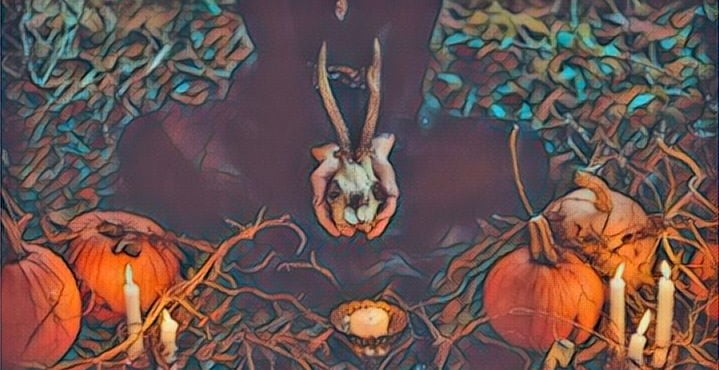I will uphold the tradition of Thanksgiving until I die, but I shall forever shudder with the utmost disgust in doing so. None but the staunchest of heart would I advise to read further, for the knowledge I am about to impart almost broke me where a hundred British muskets failed.
It is the year of our Lord 1780 and I am James Nathaniel Wilson, formerly Sergeant Wilson of the 26th Continental Regiment. I was born to Evelyn Wilson, a fisherman’s wife, who died in childbirth. My father was a God-fearing man who raised me in righteousness, honoring the devout traditions of the Plymouth Pilgrims, from whom we descend. Whaling in Nantucket, I amassed a modest fortune before joining General Washington’s patriotic cause, and today I am thankful for the freedom won in our fight. Would you believe that our very own John Hancock was just sworn in as the first Governor of Massachusetts? No longer are we the Royal Brute’s colony, and thanks were surely due to be given, had not that notion been so utterly tainted. As I sit here in my study, while my unwittingly complicit wife prepares the festive turkey dinner for me and our two beautiful girls, God bless them, I can not bear to hold it in any longer.

It began three days before May 19, when my actions would darken the sky over New England. My father had recently passed, and I combed through his legacies, sorting into different boxes what I intended to keep and what to donate to the parish. An ancient, dust-covered table in the attic caught my attention, for on it were crude carvings of shockingly pagan design. It baffled me that my father would tolerate such an idolatrous item under his roof. It was not until I saw the only symbols on it I could read that I understood. “To Evelyn” was inscribed on a corner in lavish lettering. A gnawing worry was already worming its way into my heart then, forbidding me to part with this haunting piece of furniture. I was tempted by the prospect of learning about my ancestry.
I spent that night at my late father’s house, and in my dreams I attended a most unholy feast. Wicked faces around that table dug into flesh that looked distressingly like human parts. From the far end, a seductively beautiful woman stared at me out of age-old eyes. Her allure at once felt sinful, for I could feel our kinship.
On the field of battle, your comrades might come to owe you a friendship that makes you entrust them with matters you would not even disclose to the Lord himself. Thus Henry Clark of the Salem Archives provided me with a ledger full of secret interrogation transcripts from the infamous witch trials. Instead of traces of my grandmother, however, I found ample material for my subsequent obsessive research on the purpose of the strange symbols on my heirloom table. And at 10 a.m. on Friday the 19th, in an inexplicable rapture, I slit the neck of a fattened goose over the tabletop, while reciting a heathen liturgy. The grain of the wood blurred before my eyes, conjuring up the image of a gathering in the gloom of a ship’s hull. It mesmerized me, drew me in, and I fell through the tabletop, finding myself on a dark, dismal, freezing lower deck.
The congregation into whose midst I stumbled gasped with what breath they had left in their starved, sickness-stricken bodies. But one eyed me with fearless suspicion, a dark-haired girl who immediately noticed the book I held in my hands.
“Hand it over, boy, if you ever wish to return home,” she demanded.
My consternation matched that of my unexpectant company, so I let go of the book without complaint.
Leafing through it, she murmured of a demon this ledger allowed her to summon to save these ill-fated settlers. It dawned on me that by sorcerous means I had wound up amidst my forefathers.
“Witch!” spat an elderly man, “heretic!”
“I will not be lectured on heresy,” she retorted, “by one who fancies himself a saint.”
A desperate youth crawled toward her, croaking: “But what of paradise?”
“If God is a shepherd,” she answered, “then paradise is his pasture, and I for one am no livestock to be herded.”
And I saw clearly that she spoke the truth. Rather than the Lord’s sheep, she was a wolf that prowled, a mistress of her own destiny. She was my grandmother. And then I saw her practice her craft, a hellspawn bride, dancing until the demon took hold of her.
“Eat!” an inhuman voice rang out from within her, “debauch yourselves!”
And the haggard body of the youth that had groveled before her burst open, an abundance of crops and fruit sprouting from his entrails.
“You shall have rich harvests,” the demon purred, “for as long as you give thanks to me each year, indulging in gluttony.”
Her yellow eyes were that of the devil, as she added: “And your descendants shall remember to give thanks for all eternity, fattening themselves each harvest moon, lest I devour their children whole, skin and bone and soul and all.”
I could not resist the unnatural urge to join the others in their gorging, hunching over the boy’s ruined corpse. From the corner of my eye I saw “Mayflower” written on a crate. After the feeding, while I was still in a dazed state of ghoulish revelry, the witch thanked me for fulfilling the destiny this book from Salem would enable her to plot for me over the coming 178 years.
At last, the lamentations of distraught townsfolk woke me from this madness, as I writhed on the attic’s familiar floorboards. I know now that this house lay at the center of the mysterious darkness that befell New England that day. Never did I find that abominable book again that I had carried across the boundaries of space and time.
This story previously appeared in Shtorytime 2022.
Edited by Marie Ginga
Silas Bischoff is an aspiring writer of speculative fiction of all kinds, including screenplays, with a background in science and technology. You will find no long list of references here, because frankly, he's just beginning.

